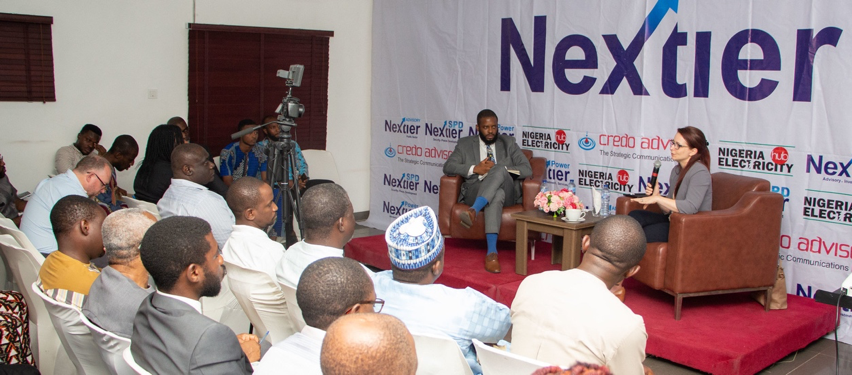
I’ve written on Nigeria’s nuclear power ambitions before (here and here), but last month marked my first visit to the country. Through a week of speaking, interviews, and lively Q&A, I learned a lot about the troubles of the Nigerian power sector and the potential future of nuclear energy. Three surprises stood out to me:
1. Everyone seems to agree that lack of power capacity is not the problem.
Nigeria has a population of 191 million people, but the average annual electricity consumption for residents is only 150kWh, less than what it takes to run a refrigerator in the US. So I was surprised how often I heard the refrain that Nigeria did not have an under-capacity problem. In fact, they had too much power generating capacity, I was told. The real problem lies in the transmission and distribution system.
It is true that while total installed generating capacity in Nigeria stands at 13GW, average operating capacity is only about 6GW. In the West, it’s normal to have intentional over-capacity to manage the ups and downs of demand, but in Nigeria the problem is poorly performing plants and interruptions in the gas supply. Nuclear could be beneficial here if owned and operated by a foreign firm, in addition to its 2-year fuel supply. Having more large-scale, baseload power plants could also help to maintain stability in the grid and help restart the grid after a blackout, but it won’t solve the deeper problems in the transmission system.
If a foreign nuclear vendor wanted to increase their odds of success in Nigeria, it might be advantageous to package a nuclear power project with investment in the transmission and distribution network. This could help ensure that the newly generated electricity is actually making it to paying customers.
2. The Agreement with Russia’s Rosatom is viewed as a done deal (It’s not.)
The Nigerian government signed an agreement with Rosatom in 2017 to construct and operate up to four nuclear reactors at two sites, along with a research center. While this sounds impressive, Rosatom has similar agreements with dozens of emerging economies and may not be able to finance and support many of these projects.
Rosatom is currently constructing the first nuclear power plants in Hungary, Turkey, and Bangladesh. Their generous Build-Own-Operate (and sometimes Transfer) model is ideal for nuclear newcomer countries, particularly when state-supported financing is included from Russia. But I was surprised how many people I spoke with in Abuja assumed the Rosatom projects were a done deal, had already begun construction, or had already begun generating electricity! I’d put the likelihood that a Rosatom plant reaches finalization and starts construction within the next five years at 10%. Maybe 20% within ten years.
3. People liked the idea of a private or industrial user as the first customer for nuclear, rather than a large, government-backed project.
Despite the widespread acceptance of the Rosatom deal, many people I talked with seemed skeptical that the local generating companies (who operate existing power plants) could handle such a big energy project as a nuclear power plant. They liked the idea of small modular reactors, particularly if they were small enough to be deployed by private industrial users, such as mining sites. Since small-scale residential, commercial, and industrial diesel back-up generators are universal across Nigeria, the idea of industrial users owning and operating their own nuclear generators seemed like a natural fit. In that sense, Nigeria could leapfrog the traditional large-scale nuclear import model. As Nigeria is the largest oil producer in Africa, they might have a willing first customer who could afford to invest in cheap and reliable source of energy in the long-term.
Importing their first set of reactors through a Build-Own-Operate contract may be Nigeria’s best option for getting nuclear power in the next decade, but looking to other vendors offering smaller, more advanced designs could increase the likelihood that a project actually gets started in the short-term.
To see a sampling of the questions I received about nuclear while in Abuja, check out the two live TV interviews I did with Arise News and TVC News.

